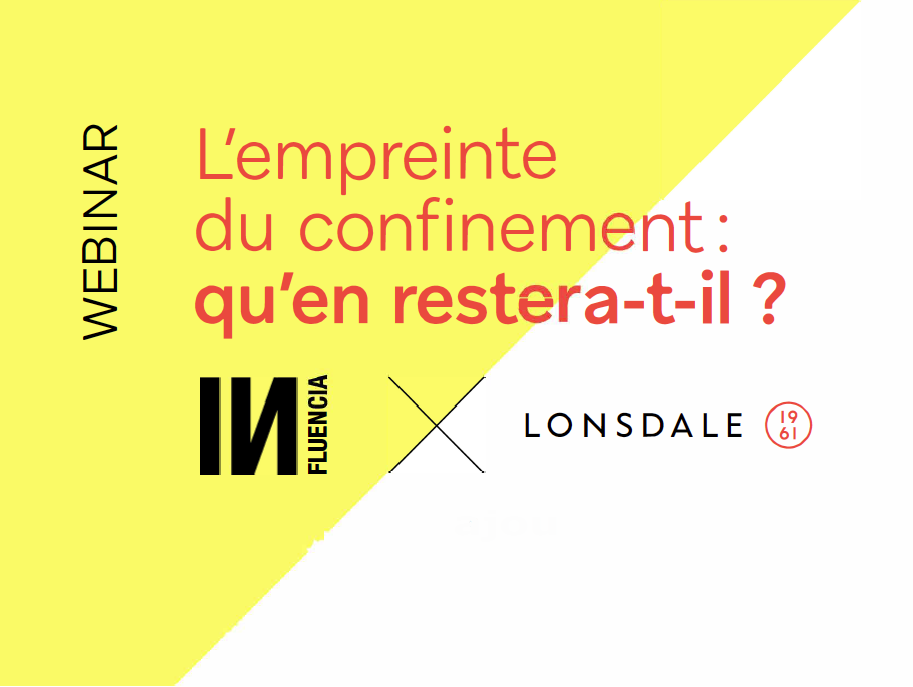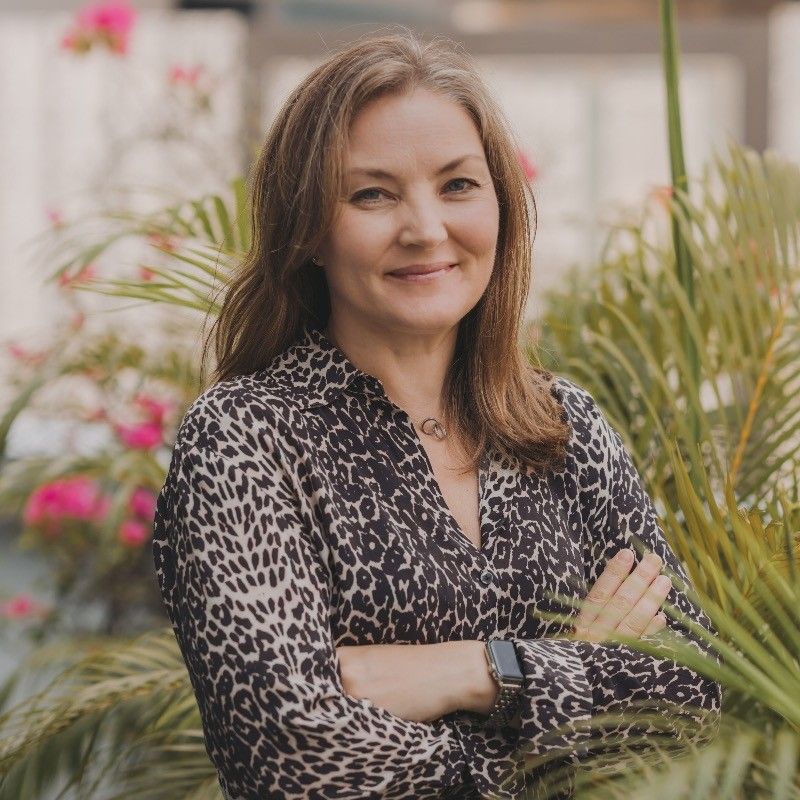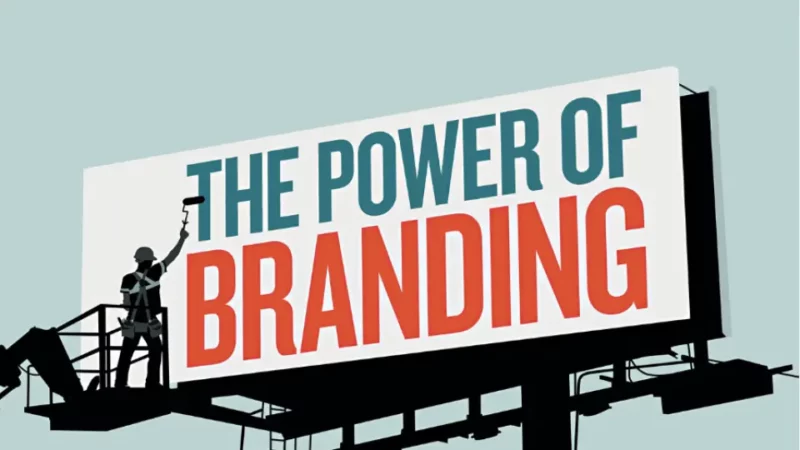
Understand, anticipate, adjust. For 8 weeks now, the minds of marketers have been writhing over the course of studies, surveys and reports of all kinds, trying to grasp a better understanding of the consequences of the COVID-19 crisis. To call on the collective expertise of several different companies and industry specialists, the branding and design agency, Lonsdale, organized, yesterday, a Webinar rich in lessons. In collaboration with INfluencia, an anthropological and collective reflection entitled: “The traces of COVID-19: what will remain?”. A 3-point report.
There is no doubt that changes are underway where society, lifestyles and consumerism are concerned. What impact will COVID-19 leave on our lifestyles and consumption habits? The design and branding agency, Lonsdale, and INfluencia hosted a panel discussion yesterday to discuss the matter. On the menu: an anthropological analysis of the phenomenon, joined by Fanny PARISE, anthropologist and researcher at the Lemanic Institute for Practical Theology at the University of Lausanne; Dominique Lévy, Deputy Managing Director of BVA; Félix Mathieu, Director of Strategic Planning at Lonsdale; Isabelle Musnik, Founder and Publishing Director of INfluencia; and Marc-André ALLARD, Director of Innovation and Design Thinking at Lonsdale.
Following is a 3-themed summary of the event, as imagined by Félix Mathieu, Director of Strategic Planning at Lonsdale, exploring the way in which the crisis structures our perception of reality and our ways of interacting.
Alone and together: Increased solidarity or self-sufficiency 4.0?
For urban residents accustomed to anonymity, the crisis is giving birth to new local solidarities, redefining relationships with others through certain rituals, for example the window ritual, whereby French citizens gather at theirs windows every evening at 8 p.m. to pay tribute to healthcare workers. For the 4 million exiles in the countryside, digital technology is becoming an indispensable tool. For them, as for many others, we are alone but connected. Thus emerges what Edgar Morin calls the “community of common fate”.
We see that there is no shortage of inspiration and that it allows us to imagine new formats for social blossoming: new intergenerational cohesions, poly-educational activities, a DIY boom, home education, home entertainment, telework etc. For Fanny Parise, this lonely experience requires a hybridization of physical and digital relationships. She underlines that, “Paradoxically, it is the digital that has made it possible to reconnect with proximity and solidarity through tools that compensate for measures of physical distancing.”
This raises some questions: what will remain of the mutual aid and solidarity circuits tomorrow? Can the circular economy take off? Brands: can they perpetuate this solid and human bond while still preserving everyone’s autonomy?
With regards to consumer reactions, two factors have to now be taken into account:
- The economic factor: more than half of French people say they are worried about their financial future of their employer, which necessarily translates to different spending habits.
- Fear: when we ask French citizens what they will do once the lockdown is over, we notice a tension between “what I want to do” and “what is dangerous to my safety”.
The appearance of this new factor therefore requires brands to reassure shoppers all throughout the customer journey, from product to packaging, to points of sale. “Currently, 85% of French people feel reassured by a label”, explains Dominique Lévy, “this shows that trends that have emerged before the crisis will prevail, with the ecological and ethical factors on the one hand, and the economic factor on the other “. For Fanny Parise, “the world post-COVID-19 will not be much different, but the “weak signals” and new trends previously identified will be consolidated.”
Will the cohesion last? Apparently not. According to Fanny Parise, when talking about a cohesive society, it is not all black and white, especially in a culture like ours where “individuals are encapsulated in an ultra-liberalism”. Solidarity as a directive, and the principle of belonging, prevent us from attaining a truly different and inclusive solidarity.
Was it a semantic error to speak of social rather than physical distancing? “The COVID-19 crisis has created a particular set of semantics. Everyone interprets the signals of the crisis as the confirmation of his or her theory: neoliberals, environmentalists – they are all comforted in their beliefs. “Existing solidarities are strengthened, but new ones are not being born”, explains Dominique Lévy. “When the media, as a reflection of collective thinking, tends to polarize the struggle between incivility and cohesion, we interpret it as a resurgence of a class struggle,” she continues – an opposition between the lower staff members and the protected executives who give orders via telecommunication.
Deterred once and for all? Can consumerism be challenged?
Félix Mathieu notes that “60% of French residents think that the crisis will have a lasting impact on society, and only 12% say that they will engage in hedonistic activities (7% shopping, leisure, 5% travel) once the lockdown has been lifted”. Will we give in to impulsive consumption? How can we revitalize the seduction economy? How does one create new opportunities to showcase oneself? Will face masks become a new fashion accessory? Will frugality be dictated by morality or by necessity? He adds: “Then there is the question of a polarization of brands. On the one hand, the ascetic brand: essentialist, authentic, supportive, in pursuit of happiness and quality versus quantity. On the other, the Dionysian brand: ultra-sensuality, negation of social norms, dissent, libertarianism, etc. “
For Fanny Parise “individuals are bona fide liars: the crisis creates an exacerbation between “what I want to do” and “what I really do”. Before COVID-19, the inspirations linked to responsible consumption attempted to democratize themselves. These have only been reinforced. But at the same time, the desire to return to reality with access to modernism and the comfort it provides is palpable. Individuals are therefore caught at a crossroad”.
But if environmental responsibility is on the menu, the economic factor is more so than ever. As Dominique Lévy points out, there are multiple cleavages: economic, cultural and generational. “Not all young people are responsible natives, it obviously depends on the social and cultural context, in terms of awareness and means.”
Virtual reality: a new dimension to our daily lives?
According to Félix Mathieu, the sophistication of the leisure experience at home calls for rethinking the virtual as a major means of interaction between individuals and reality. For example, graduation for Japanese students via robots, performance by Travis Scott on Fortnite, digitalization of events etc. Not only does the virtual protect us from reality, but it evolves to become more interactive, enabling the relationship depth that exists in reality. How can brands navigate between these two worlds without weakening their identity? What can they offer in universes where you can already have everything your heart desires? What impact will this virtual reality have on people’s involvement in real life?
For Fanny Parise, these new habits of interaction are to be mastered by integrating the gray areas specific to our new reality. We can speak of a “phygitalization of lifestyles and consumerism”. Dominique Lévy adds: “In work as in consumerism, we have learned to do without a certain degree of physical movement. What we do in real life can be done digitally.” Where yesterday, on average, 3% of French citizens used teleworking on a more or less regular basis, the crisis has increased this percentage to 25%. So, why not keep these safer and more comfortable habits for the future to come?
By journalist Camille Lingre



